
-
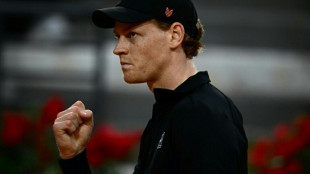 Sinner demolishes Ruud as Gauff battles into Italian Open final
Sinner demolishes Ruud as Gauff battles into Italian Open final
-
Aussie Davis, American Gerard share PGA Championship lead

-
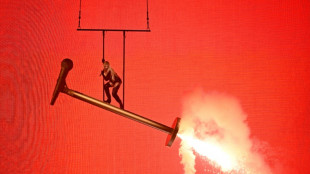 Austrian opera, Finnish lust through to Eurovision final
Austrian opera, Finnish lust through to Eurovision final
-
How Flick's Barca wrestled La Liga back from Real Madrid

-
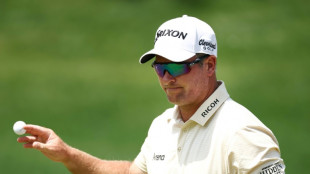 Kiwi Fox, local hero Smalley make most of late PGA calls
Kiwi Fox, local hero Smalley make most of late PGA calls
-
Oil prices fall on hopes for Iran nuclear deal
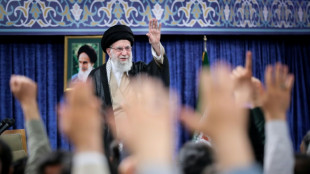
-
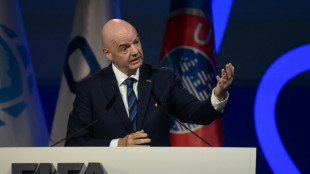 European walkout after late Infantino delays FIFA Congress
European walkout after late Infantino delays FIFA Congress
-
Yamal pearl seals Barcelona La Liga title triumph at Espanyol

-
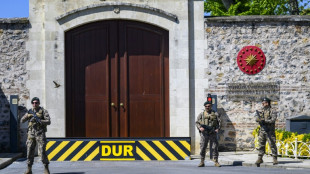 Rubio has no high expectations for Ukraine-Russia talks
Rubio has no high expectations for Ukraine-Russia talks
-
Milkshakes, opera and lust as Eurovision semi votes counted

-
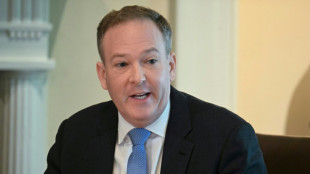 Trump admin leaves door open for tougher PFAS drinking water standards
Trump admin leaves door open for tougher PFAS drinking water standards
-
No.1 Scheffler, No.3 Schauffele blast PGA over "mud balls"

-
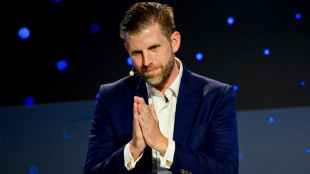 Eric Trump says father's energy policies will help crypto
Eric Trump says father's energy policies will help crypto
-
US rests case in landmark Meta antitrust trial
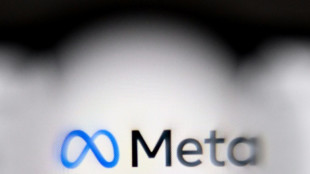
-
 Alba inks Inter Miami extension to 2027
Alba inks Inter Miami extension to 2027
-
Real Madrid's Asencio wants 'presumption of innocence' in underage sex video case

-
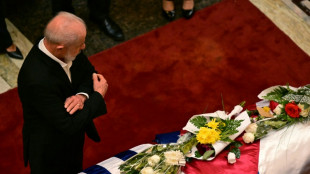 Brazil president leads final farewell to Uruguay's Mujica
Brazil president leads final farewell to Uruguay's Mujica
-
Donald edges Bradley as Ryder Cup captains contend at PGA
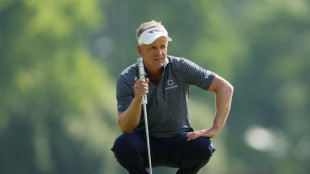
-
 Eurovision semi starts with milkshake and space odyssey
Eurovision semi starts with milkshake and space odyssey
-
Ruud mesmerised by 'next level' Sinner in Rome destruction

-
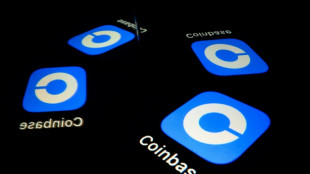 Coinbase expects data breach to cost it up to $400 mn
Coinbase expects data breach to cost it up to $400 mn
-
Eagle chip helps Gerard grabs PGA Championship lead with 66

-
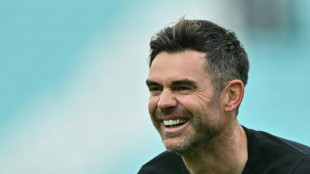 England great Anderson set for Lancashire return
England great Anderson set for Lancashire return
-
Sinner sends message by demolishing Ruud to reach Italian Open semis
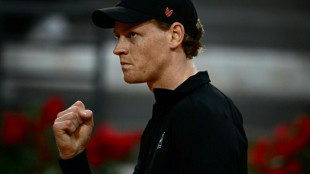
-
 Rubio says no high expectations for Ukraine-Russia talks in Turkey
Rubio says no high expectations for Ukraine-Russia talks in Turkey
-
NFL owners to vote on allowing players at 2028 Olympics

-
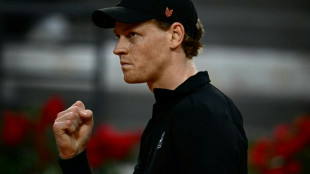 Sinner demolishes Ruud to reach Italian Open semi-finals
Sinner demolishes Ruud to reach Italian Open semi-finals
-
Rashford to miss final two games of Aston Villa's season

-
 70 South African white rhinos to be relocated to Rwanda
70 South African white rhinos to be relocated to Rwanda
-
West Indies issue LA 2028 Olympic cricket plea
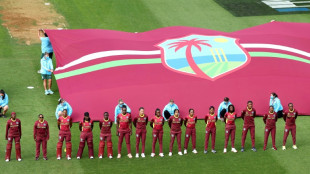
-
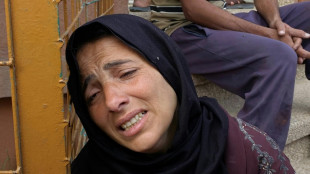 Gaza strikes kill over 100 as Hamas says aid entry 'minimum requirement' for talks
Gaza strikes kill over 100 as Hamas says aid entry 'minimum requirement' for talks
-
Nantes striker Mohamed fined for sitting out game marking anti-homophobia campaign

-
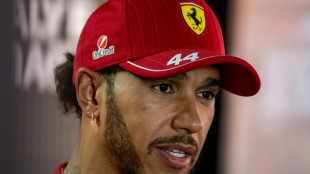 Hamilton admits he underestimated Ferrari challenge
Hamilton admits he underestimated Ferrari challenge
-
Israel in Eurovision spotlight at second semi-final
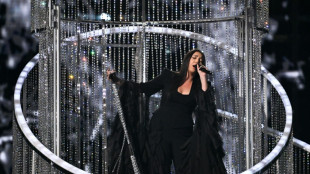
-
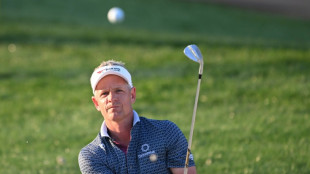 England's Donald shares PGA Championship lead with 67
England's Donald shares PGA Championship lead with 67
-
WTA president Simon to step down in December
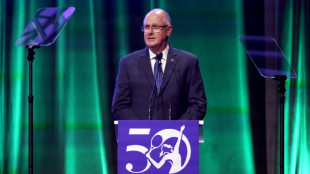
-
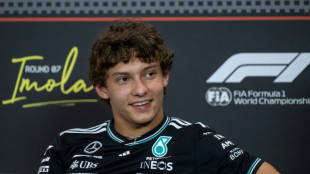 Antonelli draws on Hamilton's heart-warming message for inspiration
Antonelli draws on Hamilton's heart-warming message for inspiration
-
South African rugby mourns death of Cornal Hendricks at 37
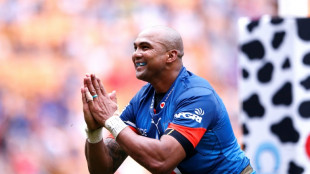
-
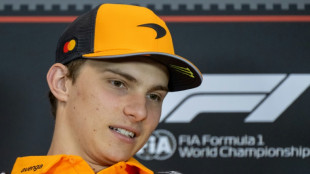 Cool Piastri plays down prospects of more McLaren domination
Cool Piastri plays down prospects of more McLaren domination
-
Hadid sister helps launch Palestinian film streaming site

-
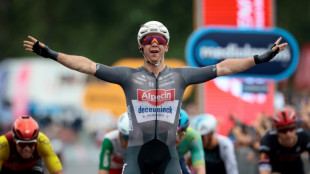 Groves wins neutralised Giro sixth stage, former winner Hindley abandons
Groves wins neutralised Giro sixth stage, former winner Hindley abandons
-
Knight eager to be 'one of the girls' under new England captain Sciver-Brunt

-
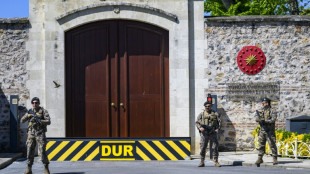 Ukraine sends team for Russia talks, downplays expectations
Ukraine sends team for Russia talks, downplays expectations
-
Paolini delights home crowd by reaching 'dream' Italian Open final

-
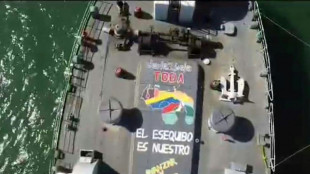 Guyana says soldiers attacked in disputed border region with Venezuela
Guyana says soldiers attacked in disputed border region with Venezuela
-
Paolini delights home crowd by reaching Italian Open final

-
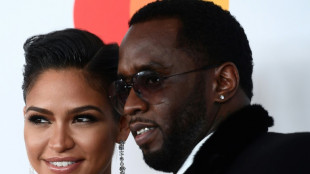 Combs's ex Cassie faces intense cross-examination
Combs's ex Cassie faces intense cross-examination
-
US set to lose $12.5 bn in foreign tourism in 2025: industry
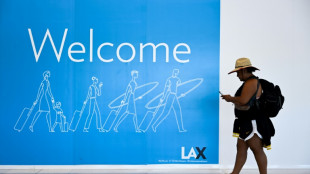
-
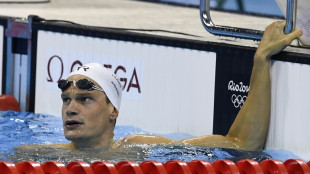 Ex-Olympic swim champion Agnel to go on trial over rape allegations
Ex-Olympic swim champion Agnel to go on trial over rape allegations
-
US Supreme Court weighs judicial checks on Trump with birthright case
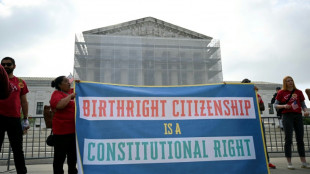

Niger turns to satellites to bridge digital divide
Less than a third of Niger's vast territory has internet access, so the west African country is betting on satellite broadband to bridge the digital divide in remote rural areas.
The patchy coverage is mostly down to a lack of investment and the destruction of relay antennae by the numerous armed groups active in the country, according to electronic communications regulator ARCEP.
In November, Niger's military rulers granted a five-year contract with US billionaire Elon Musk's company Starlink to provide high-speed internet access across the Sahel state.
It is one of around 15 African countries to have authorised the use of Starlink's thousands of satellites on their territory.
"Essential services that drive economic development -- banks, hospitals, schools, the energy and farming sectors -- all rely on the internet and data," said economist Ibrahim Adamou Louche.
Communications Minister Sidi Ahmed Raliou predicted the move would provide internet access to "about 80 to 100 percent" of Niger -- 1,267 square kilometres (490 square miles) largely covered by desert plains and sand dunes.
The deal is lucrative for the US company.
In a country where almost 50 percent of the population earns less than a dollar a day, according to the World Bank, users who want internet access must pay between 260,000 and 400,000 CFA francs ($414 and $637) for the satellite firm's necessary basic equipment.
- Big in the country -
The drive to access the internet has also spawned illicit operations.
The equipment, much of it imported from neighbouring Nigeria, is sometimes brought across the border illegally.
Users who cannot afford the equipment must pay the US company for one-off access to the internet for a limited amount of time.
"On market days especially, people congregate round the wifi router," said Moussa Djibrilla, a secondary school teacher in the rural western community of Mangaize.
Much of the enthusiasm for satellite broadband comes from remote areas, said vendor Ali Sat.
In the capital, Niamey, sales of equipment have not so far taken off and only a handful of homes are connected, he added.
In rural areas, the situation is different.
Technician Moumouni Harouna said the biggest demand for satellite internet equipment came from people "out in the bush" who liked it because "they don't lose connection".
- Elusive signal -
"We're back in civilisation," grinned Alfa Hama, a villager in the western hamlet of Gorou, near the border with Mali, where the local phone and internet relay antennae were destroyed eight years ago.
"We don't need to go six kilometres and climb to the top of a hill to get an elusive signal any more," he said. "The wifi is right here."
For a price, high-speed internet access is now available in some parts of the Tenere desert, through which travellers pass, alongside thousands of migrants seeking to make the perilous journey out of one of the world's poorest countries and through Libya towards the El Dorado of Europe.
In Tabelot, a little further south, illegal gold mining operations, markets and the long-distance bus station all offer connection points for those who can pay.
Local Touareg chief Youssaf Houssa said whole neighbourhoods sometime clubbed together to afford a piece of communal satellite equipment.
"People are able to come together more thanks to WhatsApp groups and do business online," he said.
Niger's four long-standing telecommunications operators, who are often criticised for the quality of their services, are less than keen to see the military rulers embrace the new US competitor.
"Satellite solutions complement what we do but they can't replace the advantages we offer in terms of cost, performance and personal service," said a senior official from one of the operators, asking to remain anonymous.
J.Sauter--VB
